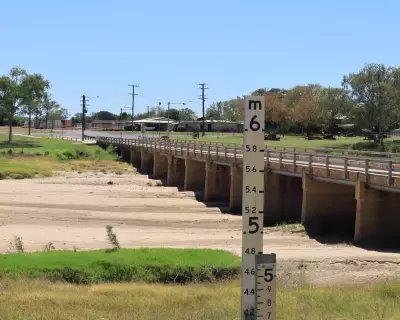
Climate change skepticism has resurfaced in scientific circles, with prominent experts arguing that the causes of global warming remain unclear and that financial interests rather than pure science drive current environmental policies.
The Voice of Dissent: Richard Lindzen's Perspective
Professor Richard Lindzen, Professor Emeritus of Meteorology at the Massachusetts Institute of Technology (MIT), has spent decades studying atmospheric science. He told the Daily Mail that public hysteria surrounding global warming lacks foundation in realistic data.
While mainstream science defines climate change as Earth's warming primarily caused by human activities like burning coal, oil and gas, Lindzen presents a contrasting view. Scientists and climate activists typically warn that additional warmth could trigger extreme storms, rising sea levels flooding cities, and hotter summers threatening global food production within the next 25 years.
Financial Motivations Behind Climate Policies
Lindzen contends that the financial implications of controlling the multi-trillion-dollar energy industry represent the true motivation for politicians supporting what he calls flawed research. The global energy industry is currently valued between $6 trillion and $7 trillion according to the International Energy Agency, with over 80% of worldwide energy consumption still relying on fossil fuels.
"The fact that you have a multi-trillion dollar industry and you have an opportunity to completely overturn it had great appeal to a lot of politicians," Lindzen explained. "They go wild on it. Another half degree and we're doomed, and so on. The public knows this is nonsense."
Despite clean energy alternatives comprising only a small portion of the industry, the IAE noted that governments and private companies invested a record $2.2 trillion into solar, wind and electric initiatives this year - double the amount directed toward fossil fuels.
Questioning Climate Science Fundamentals
Lindzen challenges the basic mathematics supporting what he terms 'climate alarm,' arguing that emphasis on reducing specific emissions like carbon dioxide doesn't produce the significant temperature changes advocates claim. He notes that planetary temperature has fluctuated significantly throughout recorded history, and science cannot definitively prove what caused extreme warming and cooling events.
"We don't understand the glaciation that occurred in the 15th century. You know, so what was going on then? Inadequate CO₂?" Lindzen said of the Northern Hemisphere's Little Ice Age.
The researcher argues that CO₂ has been unfairly portrayed as a primary climate villain when it's actually a minor greenhouse gas beneficial for plant growth. Lindzen calculates that doubling CO₂ in the air would only raise global temperatures by about half a degree independently.
He counters assumptions that warming automatically increases atmospheric water vapor - a stronger heat-trapper than CO₂ - with his Iris effect theory. This suggests that when tropics become too warm, powerful thunderstorms create cloud openings that allow excess heat to escape into space.
Academic Pressure and Research Funding
Lindzen claims the trend of demonizing certain greenhouse gases gives scientists a 'free pass' to study and support climate change theories, resulting in substantial financial grants for their universities. US federal agencies spend up to $5 billion annually on climate research, with the White House's 2024 budget allocating $1.6 billion to universities and NGOs for studies focusing on potential natural disasters from global warming.
Judith Curry, former chair of Earth and Atmospheric Sciences at Georgia Tech, supports Lindzen's concerns about academic filtering. She alleged in 2011 that one of her study co-authors cherry-picked results to emphasize minimal temperature rises while concealing data showing warming had stopped for at least 13 years beginning in the late 1990s.
Lindzen maintains that even if every country achieved 'net zero' emissions by 2050, it would prevent only a tiny fraction of temperature increase. Meanwhile, the global financial cost of complying with strict environmental regulations could reach hundreds of trillions of dollars - what he calls a terrible trade-off for minimal gain.
Current CO₂ levels actually benefit plant growth and reduce water requirements, potentially increasing arable land by 30-40%, according to Lindzen. "We are not causing the imminent crisis that we think that we are," he concluded.
Other experts including Bill Gates and environmental think tank leaders have also questioned some climate alarm assumptions, suggesting world leaders should focus on additional global threats like nuclear war.





